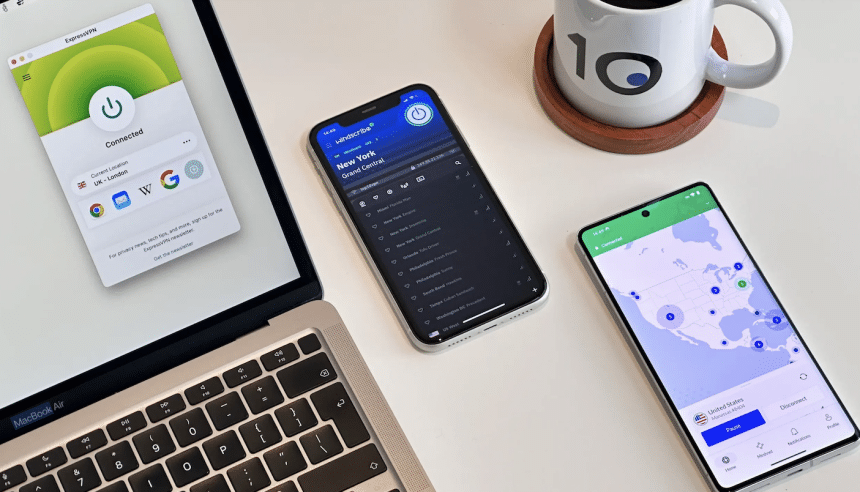As we become more and more reliant on digitization and the convenience of Internet, the more we consistently become vulnerable to safety and security concerns. When individuals go online, their Internet Service Provider (ISP) gives them a distinct IP (Internet Protocol) address that will act as a digital fingerprint tracking every page they have been to.
Although every ISP conveys an image of trustworthiness, there are still pervasive concerns and risks as to potential misuse of the information they gather from your digital fingerprint. As such, internet users are now exploring various tools to help safeguard their online data. One of these tools is the VPN (Virtual Private Network) to help users add a layer of privacy protection to their online activities.

Below, let us explore how VPN can block unwanted eyes from seeing your sensitive data and how it can provide cross-platform privacy for all of your devices.
What is VPN?
A VPN is a tool that allows Internet users to create a secure and encrypted connection between your device and the World Wide Web. Employing a VPN establishes a confidential and more secure pathway for the user’s device so that any webpage visited is directed through the VPN rather than directly tracing it back to the device. Employing a VPN or similar tool has actually become valuable especially in an age where personal data has become an important currency in this digital age.
Initially, VPNs were mainly available to desktops and laptops. However, as technologies continue to advance and people get more reliant on mobile technology it has now been made available for mobile devices.
Accordingly, you can now find a VPN for Android, iOS, and for other mobile operating systems. Depending on how savvy you can be, there is now a roster of choices you can choose from often recommended by review sites that review various VPNs according to the level of security they provide, the extent of unblocking content, and its cost. All you have to do is to choose which VPN works best for the device you need protecting.
How do VPNs Enhance Security on iOS and Android Devices?
Just like every other type of technology, VPNs have also become advanced. If before they can only protect a certain device at a time, there are now VPNs that can provide cross-platform security across various devices. Users are no longer limited to using VPNs only on their desktops and laptops as most now allow protection across devices such as smartphones and tablets.
Here are the ways VPN helps enhance security on your mobile devices:
- Data Encryption
Just like how VPN does it on desktops and laptops, VPN also encrypts data transmitted between a user’s smartphone or other mobile device and the VPN server. This encryption then converts the data into a secure code, making it unreadable to anyone attempting to intercept it.
On Android and iOS devices, this data encryption capability works best when you are accessing a page on public Wi-Fi networks which are often unsecured and susceptible to hacking.
- IP Address Masking
Another way that VPNs enhance security on Android and iOS devices is by masking or hiding your real IP address when you visit certain websites.
A VPN replaces your actual IP address to make it seem like you have connected to the Internet from a different location rather than your real location. This masking process therefore masks your device’s identity making it difficult for websites and online services to easily track your browsing habits and determine your real location.
The anonymity you get from the masking process VPN provides allows you to protect your personal information and enhance the privacy of your iOS or Android device.
- Protection from Malware and Phishing Attacks
Depending on the extent of service your chosen VPN provides, a VPN can also provide additional services such as malware blocking and phishing protection.
These types of VPN help prevent users from accidentally visiting websites with unsecured or malicious links or downloading malicious software, adding an extra layer of defense against cyber threats that can compromise your Android or iOS device’s security and privacy.
Final Thoughts
As mobile devices continue to play a significant role in our daily lives, the need to use VPN on iOS or Android devices has all the more become important.
Just like how VPNs enhance security and privacy on desktops and laptops, it is a valuable addition to any digital security protection you have initially put in place for your mobile devices. By using an effective and trusted VPN, you can enjoy a more secure and private browsing not just on your desktop or laptop but across other devices, ensuring a comprehensive digital security in this increasingly digitized world.












